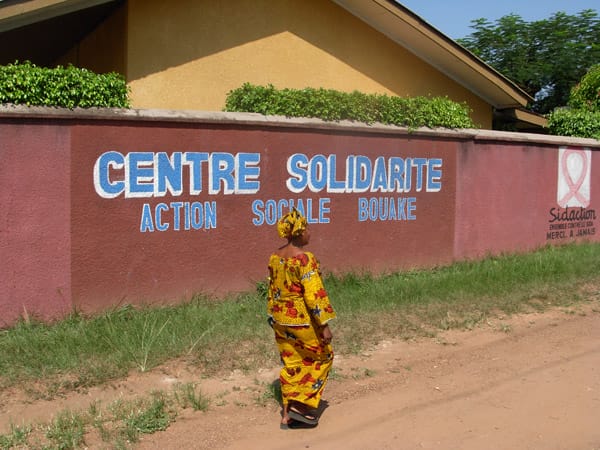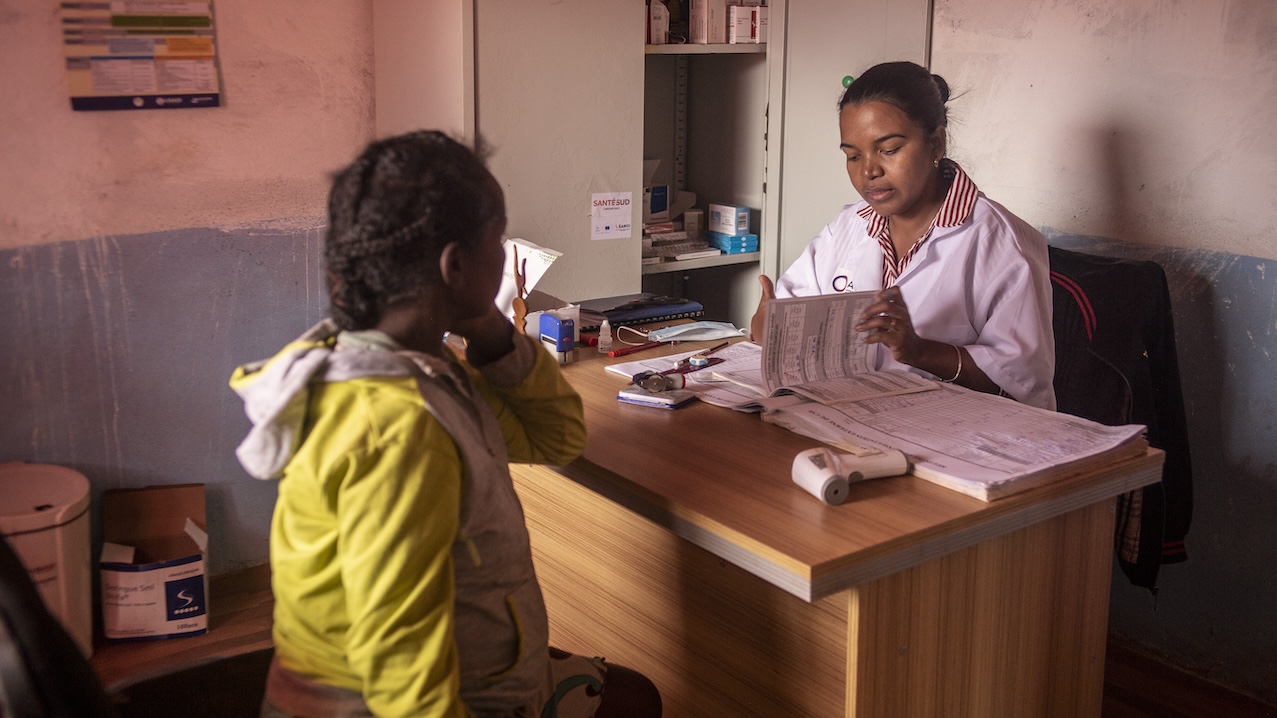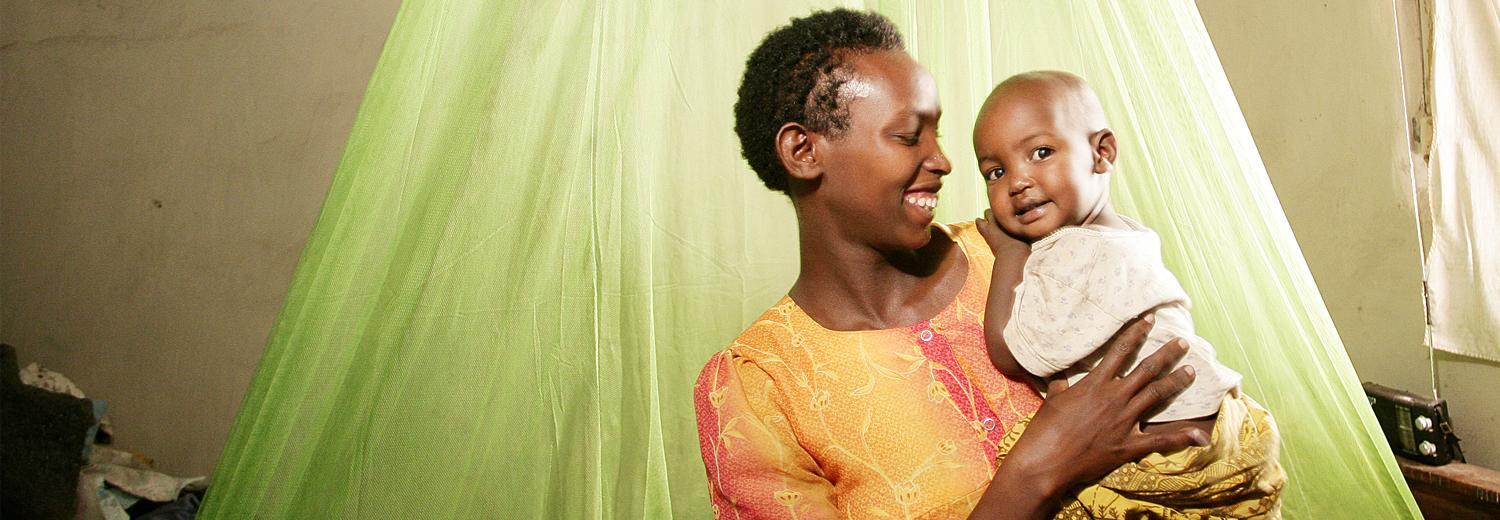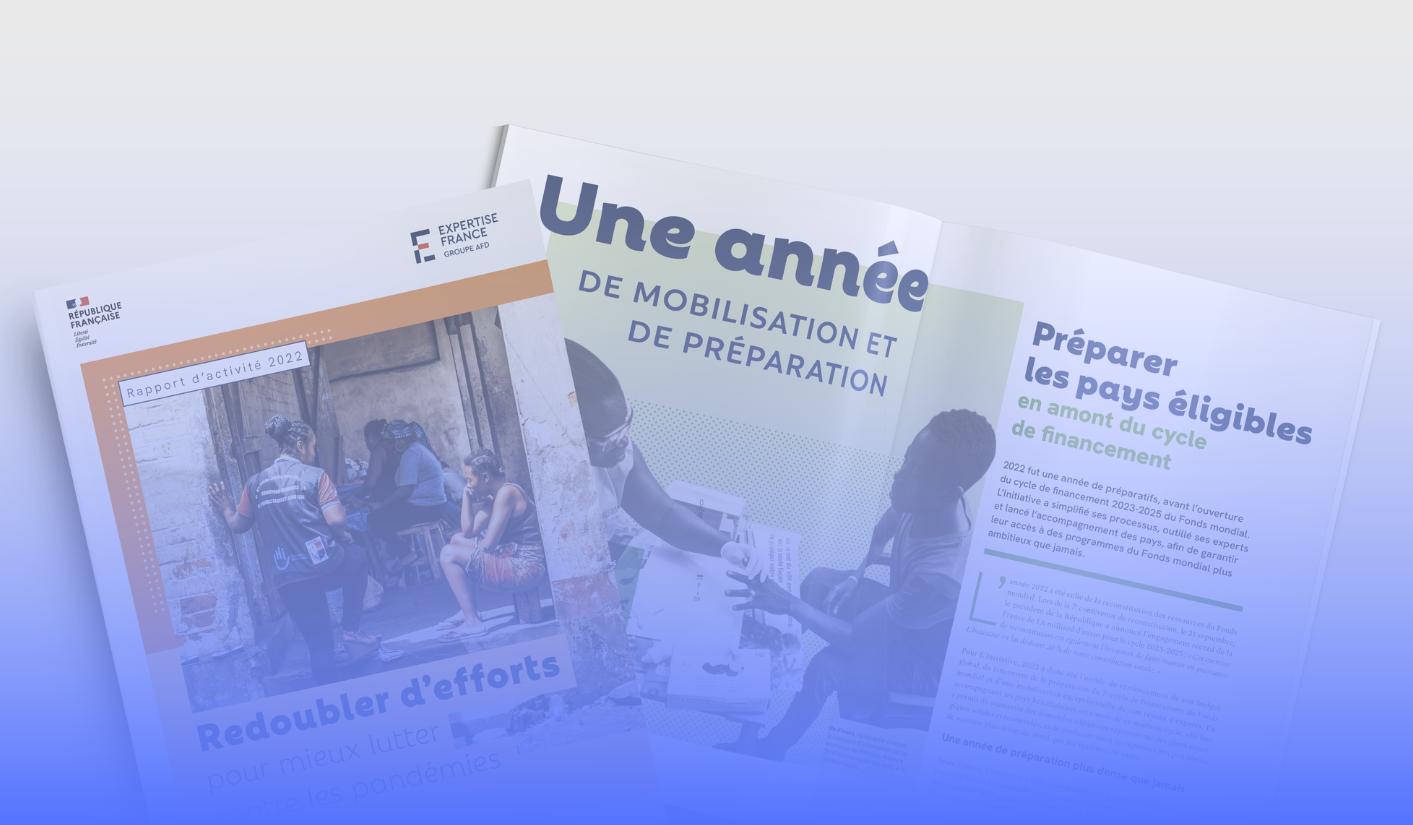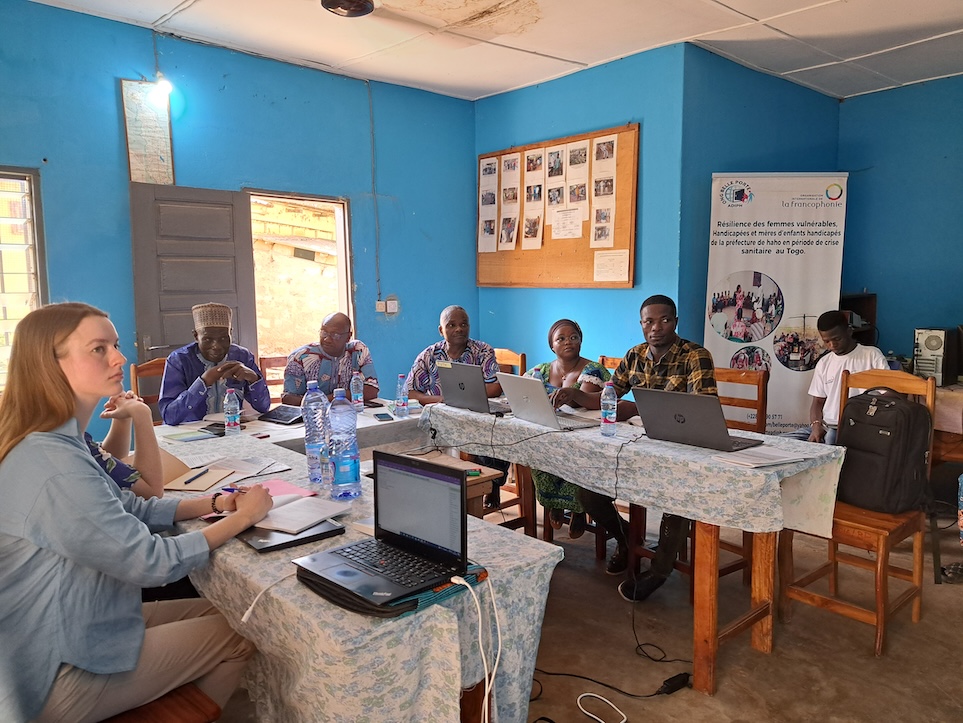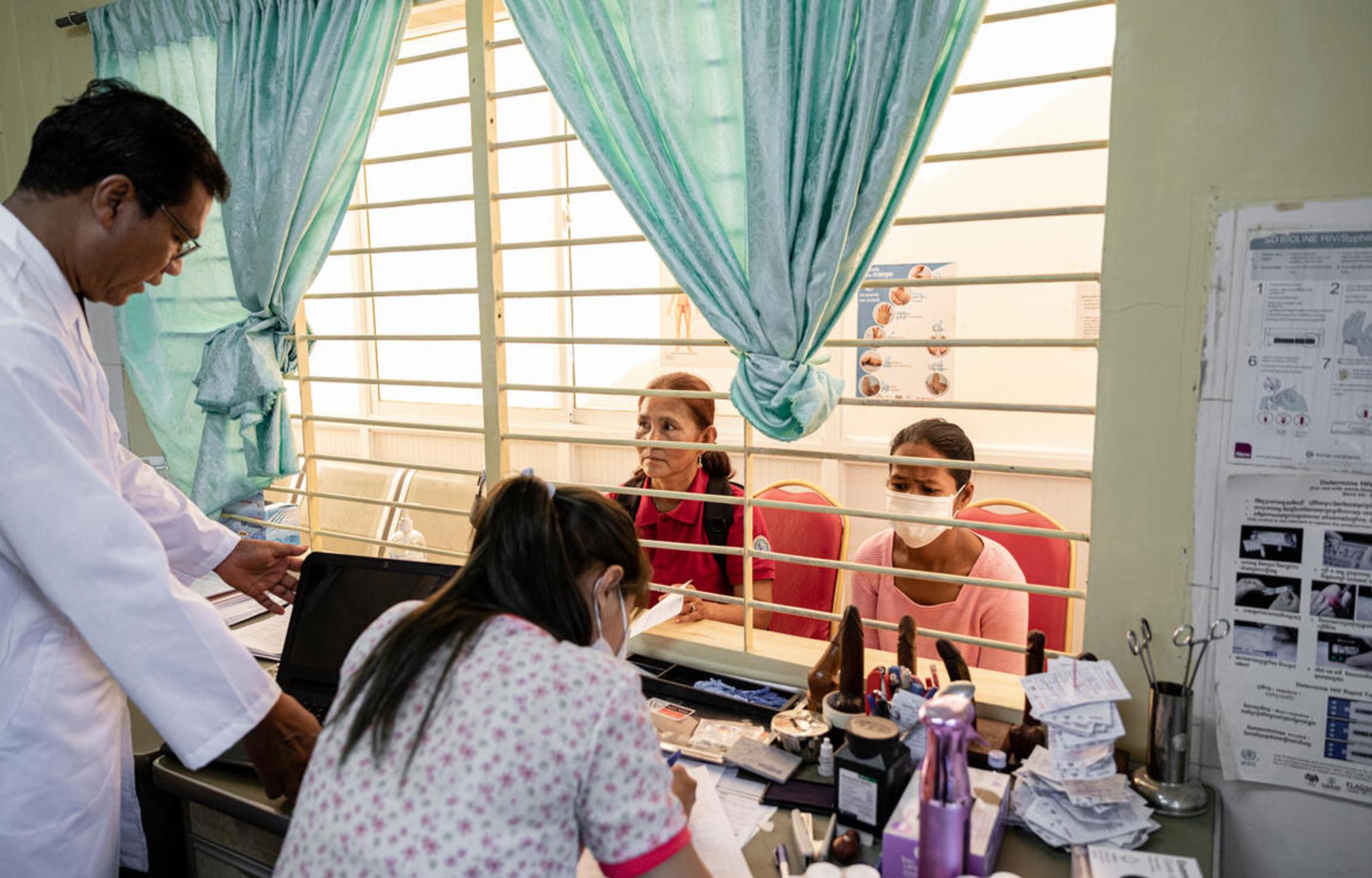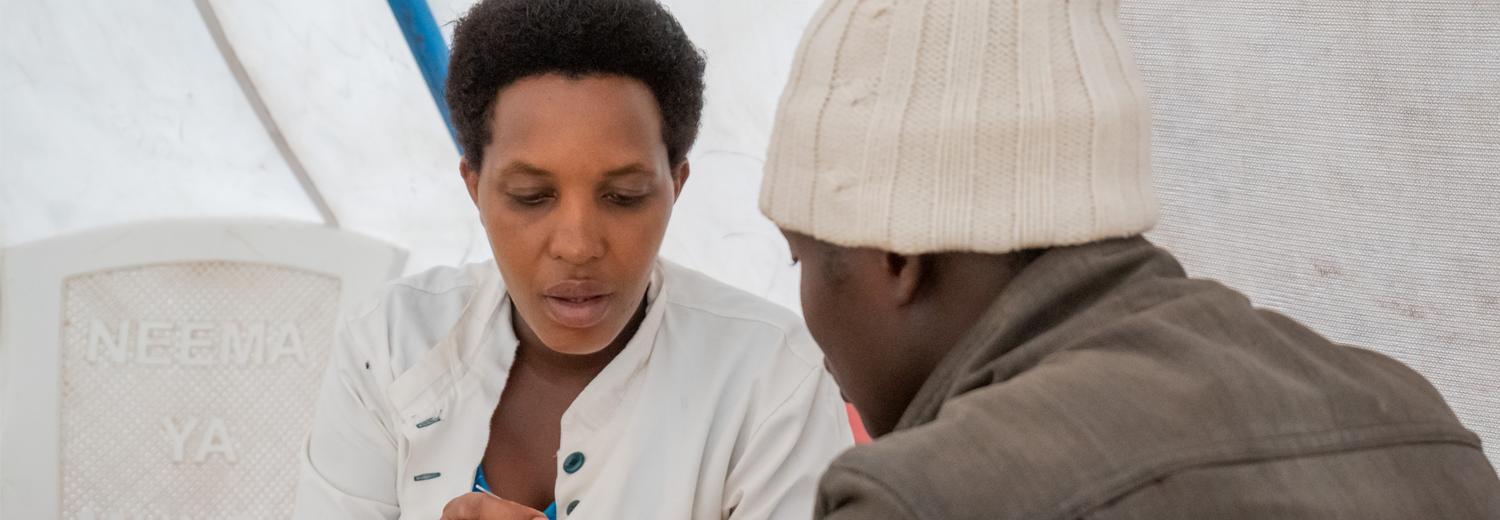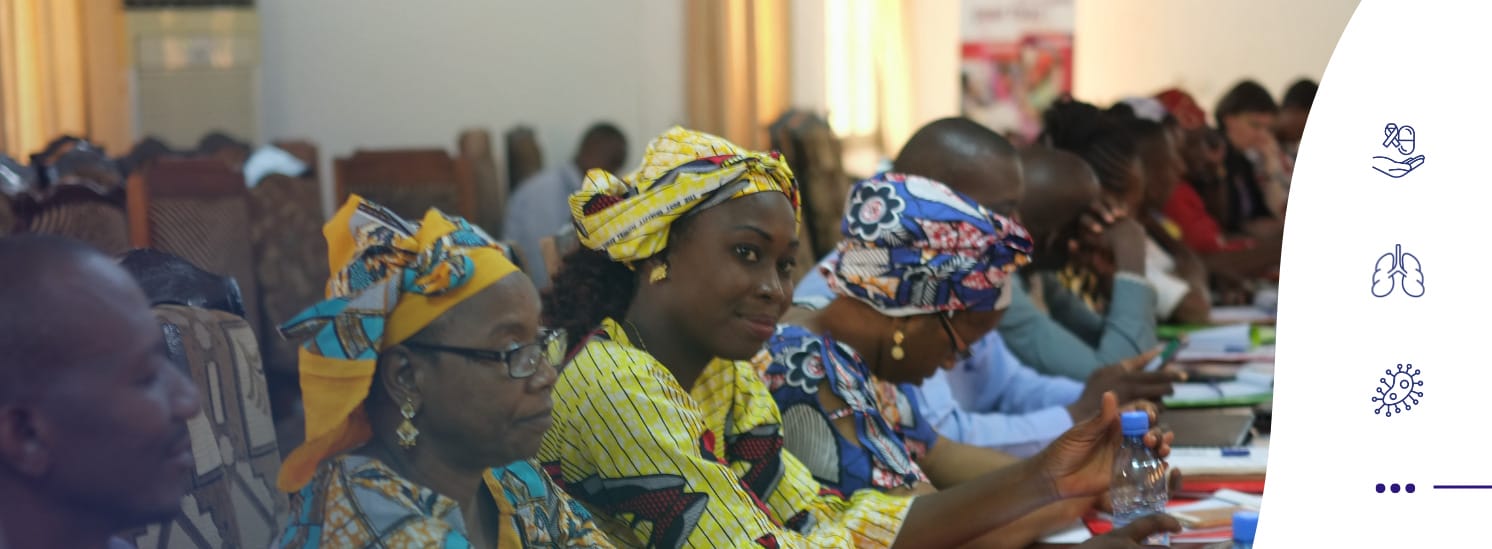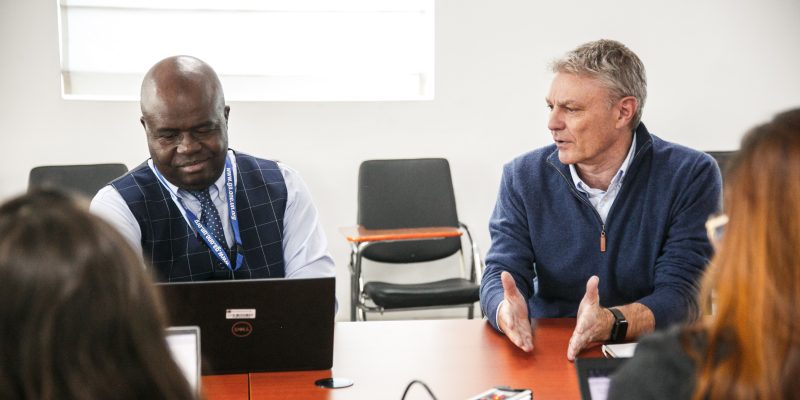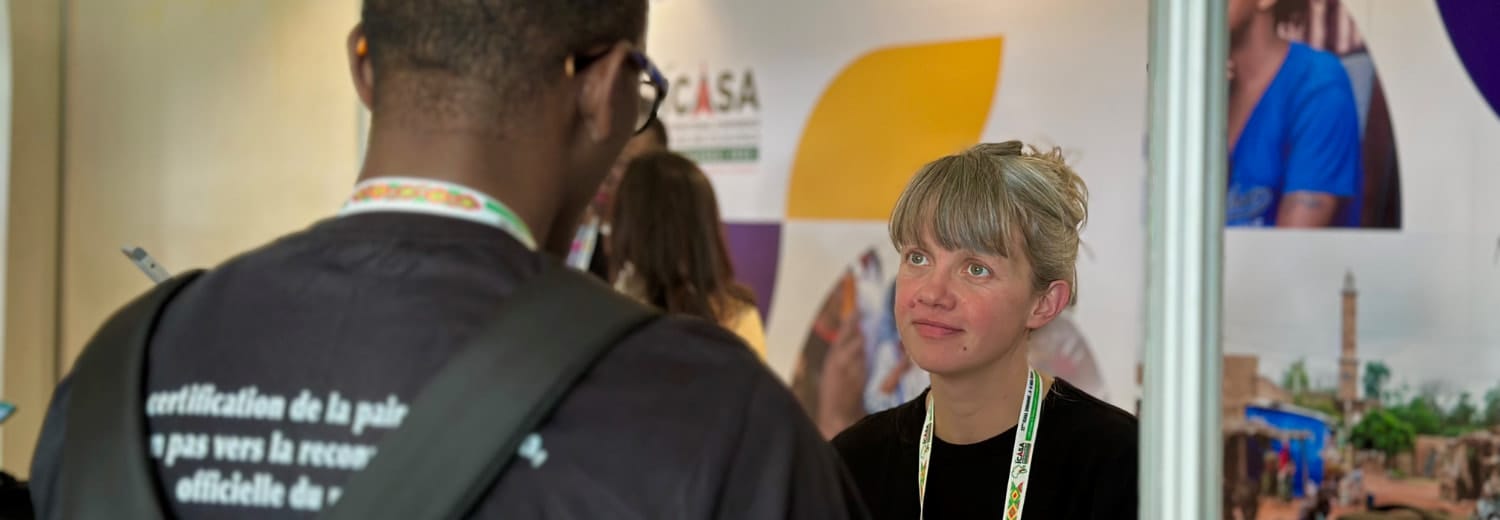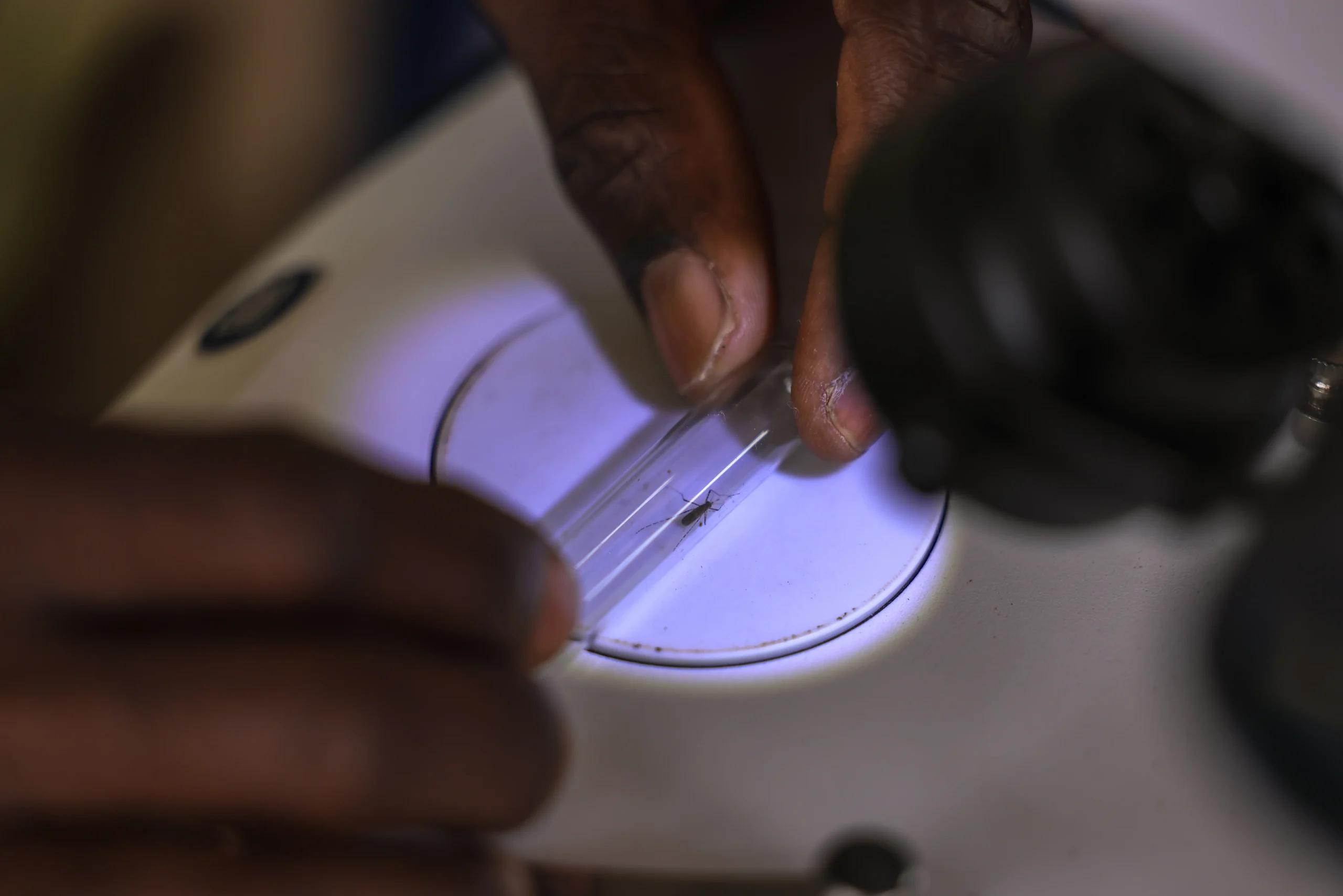Combating pediatric HIV in a community center in Côte d’Ivoire
The Centre Solidarité et Action Sociale (CSAS) in Bouaké was created in 1995 to support people living with HIV, including children and young people. It was a groundbreaking initiative at a time when there were no programs dedicated to children and teenagers living with HIV, despite the specific challenges they face. CSAS now leads the PRESERV project, which aims to improve access for young people and vulnerable groups to reproductive health and HIV services, through a combination of medical treatment and psychosocial support.
Penda Touré Director of The Centre Solidarité et Action Sociale (CSAS) in Bouaké (Ivory Coast) Penda Touré is an emblematic figure in the fight against HIV-AIDS. She talks about the center’s initiatives and its progress in the fight against pediatric HIV.
What is the CSAS mission?
CSAS is an NGO which came into being following a pilot project run by the Centre International de l’Enfance et de la Famille. Our mission is to ensure the psychological, medical, and social wellbeing of people living with HIV, especially children and teenagers.
Can you talk about the origins of CSAS?
At a very early stage, we understood that children were those most affected by HIV, due to ignorance about the disease and economic costs. We therefore developed a “family approach”, so that children whose parents died would not end up homeless. We would contact relatives to ensure that the children would still be looked after following the loss of their parents. We then introduced medical treatment. That is how the Centre Maternel Infantile et Communautaire came into being.
How does CSAS address the specific needs of young people who were either born with HIV or contracted it at a very early stage in their lives?
Most of the time, these young people would be orphaned, at which point a number of problems would emerge, first and foremost around education, followed by medication, and social stigma. Gradually, as they became teenagers and then adults, they had to continue treatment in centers dedicated to adults, which wasn’t easy for them. They were not at all comfortable, due to specific issues affecting them, such as sexuality or starting university. To improve the situation, we worked with them to develop a multi-step process for transitioning to adulthood, which entails meeting professionals, marking their entry into adulthood with a celebratory rite of passage, and training to become peer educators. Later, we developed sexual education centers aimed at parents, so children could ask them questions about sexuality from the age of 12 onwards.
What does the PRESERV project mean to you?
We had dreamed of the PRESERV project for a long time. It has enabled us to expand our youth-centered care network. It has also helped us share our experience with public and community facilities. We are currently entering the second stage, which involves setting up indicators.
To mark World AIDS Day, what message would you send to communities, decision-makers, and other people involved in the fight against HIV?
We are on track to eradicate HIV by 2030. However, if we aren’t careful, infections will once again take hold among younger generations, because now that treatment is available, it’s easy to forget about prevention. There is a need to review and rethink prevention work. There is also a need to involve men in order to protect women and children. Viral load analyses must be accessible, and the results must be made available more quickly, to keep people living with HIV in the system. Finally, there is a need for integrated care, so that HIV, hepatitis, and cervical cancer can be treated simultaneously, and that these services can be further developed around people living with HIV.
“Born HIV positive”: young people mobilized against AIDS in Ivory Coast
In this long format report produced in partnership with RFI for the program Priorité santé, dive into the heart of the CSAS in Bouaké, where adolescents living with HIV are mobilizing against the disease. What are their backgrounds, their questions? How do they see the future? In this report by Igor Strauss, discover how the care and monitoring of adolescents living with HIV-AIDS is carried out.
